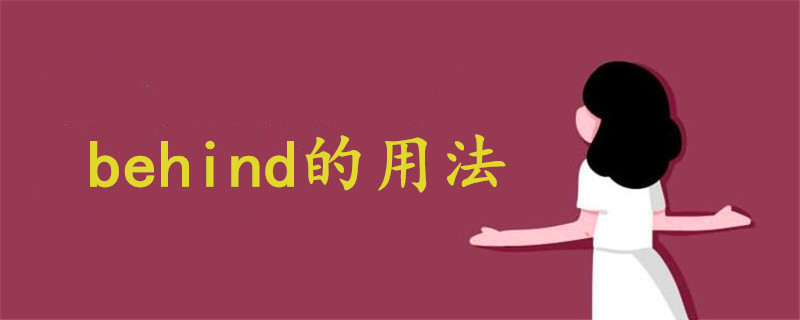behind的用法:作为介词时,behind的含义为“在…的后面”、“落后于”、“在…的背面”、“支持”;作为副词时,behind的含义为“在后面较远处”、“留在原地”、“拖欠”;作为名词时,behind的含义为“屁股”。

behind的中文含义及用法介绍
1、作为介词时,意为在(或向)…的后面;落后于;在(或向)…的背面;支持;赞成。
例句:Who's the girl standing behind Jan?
站在简身后的女孩是谁?
The sun disappeared behind the clouds.
太阳消失在云层里。
He's behind the rest of the class in reading.
他的阅读能力不及班上其他人。
She knew that, whatever she decided, her family was right behind her.
她知道,无论她作出什么决定,她的家人肯定会支持她的。
He was the man behind the plan to build a new hospital.
他就是策划建立新医院的人。
I put one of the cushions behind his head...
我把其中的一个软垫垫在他脑后。
2、作为副词时,意为在(或向)…的后面;在后面较远处;留在原地;拖欠;积压(工作)。
例句:She rode off down the road with the dog running behind.
她骑车沿路而去,狗跟在后面奔跑着。
This bag was left behind after the class.
这个书包是有人下课后落下的。
She's fallen behind with the payments.
她已经拖欠付款了。
The rebels fled into the mountains, leaving behind their weapons and supplies...
叛军丢下武器和给养,逃进了山里。
3、作为名词时,义同bottom,委婉说法,即屁股。
例句:The dog bit him on his behind.
狗咬了他的屁股。










